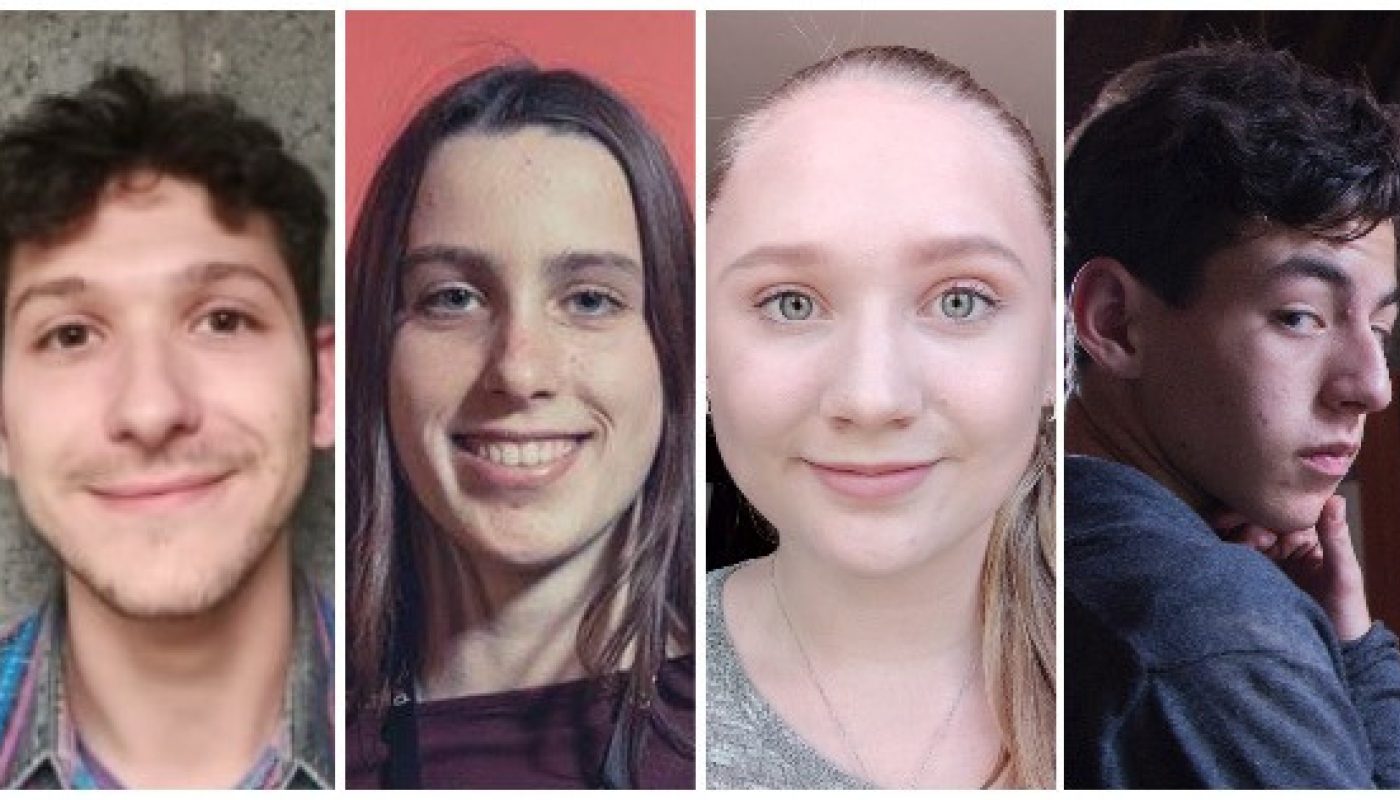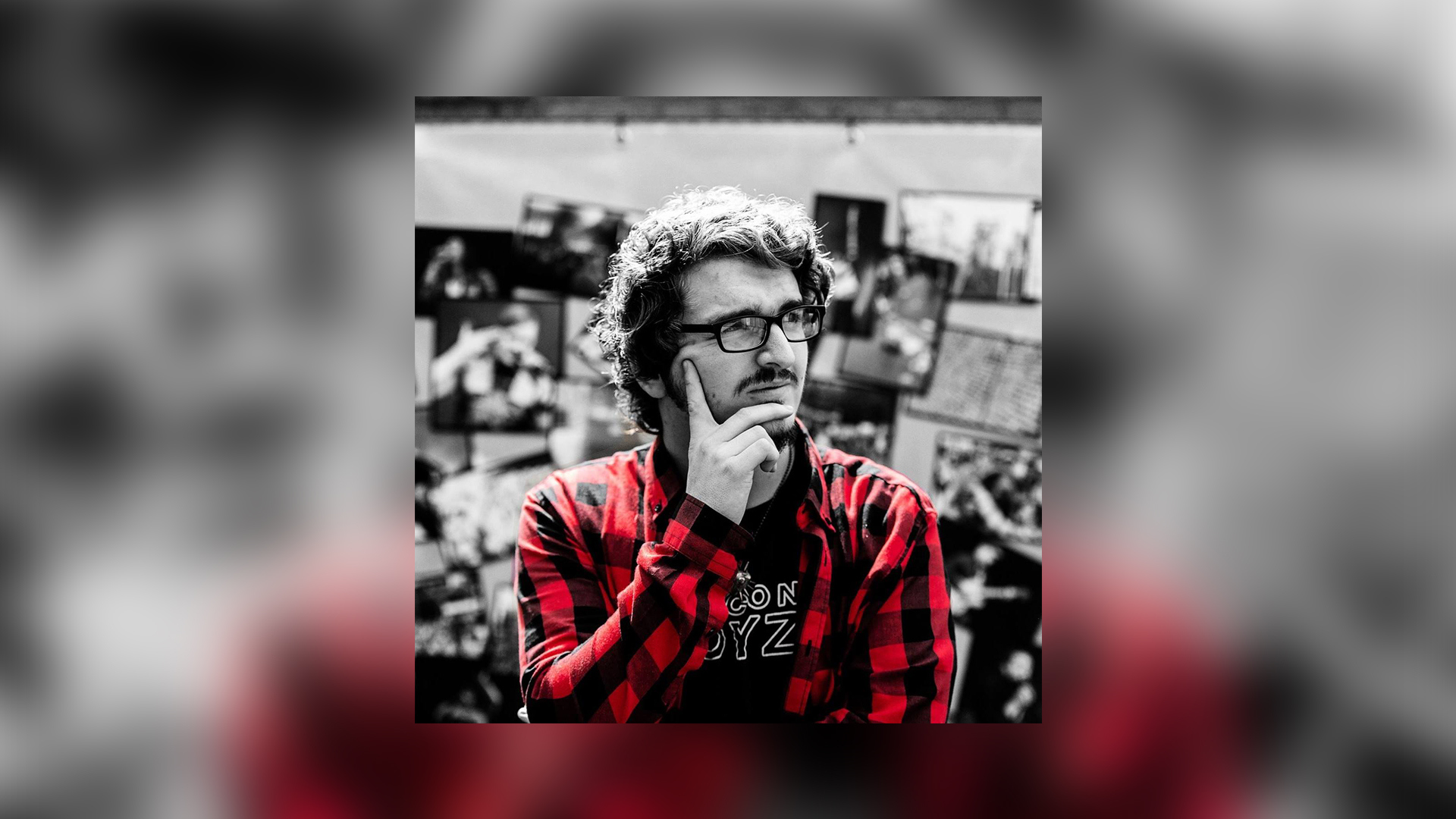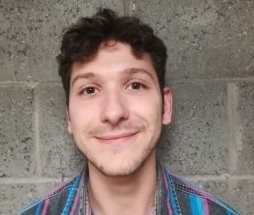

Drie vragen aan ... the Youth Jury
The six Youth Jury members take part in the Workshop | Understanding Film.
Geplaatst op 31 augustus 2020This year our Youth Jury gets the opportunity to receive a free-of-charge coaching by the film critic Bjorn Gabriels who will teach the basics of film analysis and how to write a good film review which will come in handy for when the jury choose their winner for the Youth Jury Award. After the festival every jury member will write a film review about two of the selected Official Competition films which will ultimately be published in our Online Magazine.
Let us now introduce our international Youth Jury consisting of Damiën Joosten, Maya de Weerdt and Nino de Valcq from the Netherlands, Muriel Bujotzek and Zoé Stegers from Germany and Daniel Feldman from the UK.
"I am greatly looking forward to listening to, and speaking with, someone who analyses films professionally. I'm sure they will have a lot to say and that I will have a lot to learn from them."
What do you pay special attention to when judging films?
Damiën: "I pay special attention to the flow of the film and how well it makes us understand the story. Every filmmaking element should be connected to the story."
Daniel: "When watching and studying film I pay close attention to the film as a construct, when a film has a specific effect I deconstruct the effect in reference to the film's constitutive parts. This gleans why the effect has taken place, taking note of the music, cinematography, because normally what isn't being shown is equally important to what is. I also try to make a note of a film's ideological biases, what is the message of the film? And how does it stand in reference to its core themes?"
Maya: "When I judge films, I pay special attention to what the moral of the film is. That's because I think that especially a good story can make a good film."
Muriel: "I especially pay attention to the music and sound effects and the camera work because they often deliver a specific message although it appears concealed."
Nino: "How people are using the medium of film to tell their stories and how they connect."
Zoé: "In my opinion it is especially important to be meticulous when judging a film. Therefore I will be taking notes throughout the film. It is also very important to be open about the film and its plot, as whatever piece your are judging might not be for you, considering the genre. But what I pay most attention to are the small details: symbols, metaphors, basically all rhetorical devices. It is very interesting to analyse and judge a film based on how complex and deep the plot is. The unsaid is the most essential, as it forms the film's true character and makes it the most entertaining, as it can lead the plot's direction in an underlying way, changing the feel and atmosphere the viewer experiences."


What are you especially eager to learn during the Workshop | Understanding Film?
Damiën: "I would love to learn more about the difference between mainstream and arthouse. Why should every filmmaker make at least one mainstream film?"
Daniel: "As for what I am looking to gain from the Understanding Film Workshops, I think it generally all sounds really interesting. I am greatly looking forward to listening to, and speaking with, someone who analyses films professionally. I'm sure they will have a lot to say and that I will have a lot to learn from them. I think the workshops themselves will also help my own individual studies at university, as well as let me put what I have already learned into practice. Of course I am greatly looking forward to watching the short films themselves."
Maya: "At the workshop I hope to learn more about analyzing and looking into the details of a film."
Muriel: "I would like to watch movies in different perspectives so I can analyze hidden aspects and understand the deeper meaning of the movie."
Nino: "I'm eager to learn how to look for the smaller details in film and to appreciate them more."
Zoé: "I am particularly interested in learning about critiquing a film in an effective, professional way. Not only that, but I want to learn more about writing reviews in general. Another aspect I am eager to learn is to value a short film in all parts, as it is easier to do this when knowing what to look for, what is important and what makes it special. Furthermore I want to understand better what kind of effects the films have on viewers and how it is accomplished."
What is your favorite (short) film and why?
Damiën: "Django Unchained, no doubt. It's the definition of good character development and storytelling because it makes you feel like you are watching a legend unfold around the main character."
Daniel: "As for which short is my favourite, it is hard for me to answer concretely as there are many with a special place in my heart. Recently, one which I thoroughly enjoyed is called Borrowed Time (2015). It got an Oscar nomination for Best Short the year it came out and I think its deserved of the praise. The film is directed by two Pixar artists and their style is evident, it's great to watch them apply it to some more mature content. I also love how the narrative tells an emotional and sentimental story with very little dialogue."
Maya: "For example the short film Zion (2018) because it has a good morale."
Muriel: "ReMoved (2013) by Nathanael Matanick is my favorite short film right now. Matanick and his team achieved to create a film packed with violence, vulnerability, fear and hope. Showing the various life situations of a little girl and the amazing and professional camera work, the story affects emotionally and it stays in people's minds."
Nino: "My favorite film changes every time. It depends on the mood I'm in. But if I have to choose one I think it is After Hours (1985) because it shows how strange the night can be in a hilarious way."
Zoé: "My favourite short film would be Human Form (2014) by the Korean director Do Yeon Noh. The horror short film is really fascinating as we see an extreme form of homogeneity achieved through plastic surgery, which is fairly common in South Korea. In my opinion, this movie shows this unsettling reality through an extreme and warped perspective of a female Korean teenager wanting to look like others in society that lures the viewers into a trap. This is why I choose it as my favourite. The film's plot and moral really gets you to think about it, inducing the viewers to inform themselves about society."

Short Film Competition | Shifting Distance &
Workshop | Understanding Film
September 5, 11 & 12
(c) All visual material is used with permission.